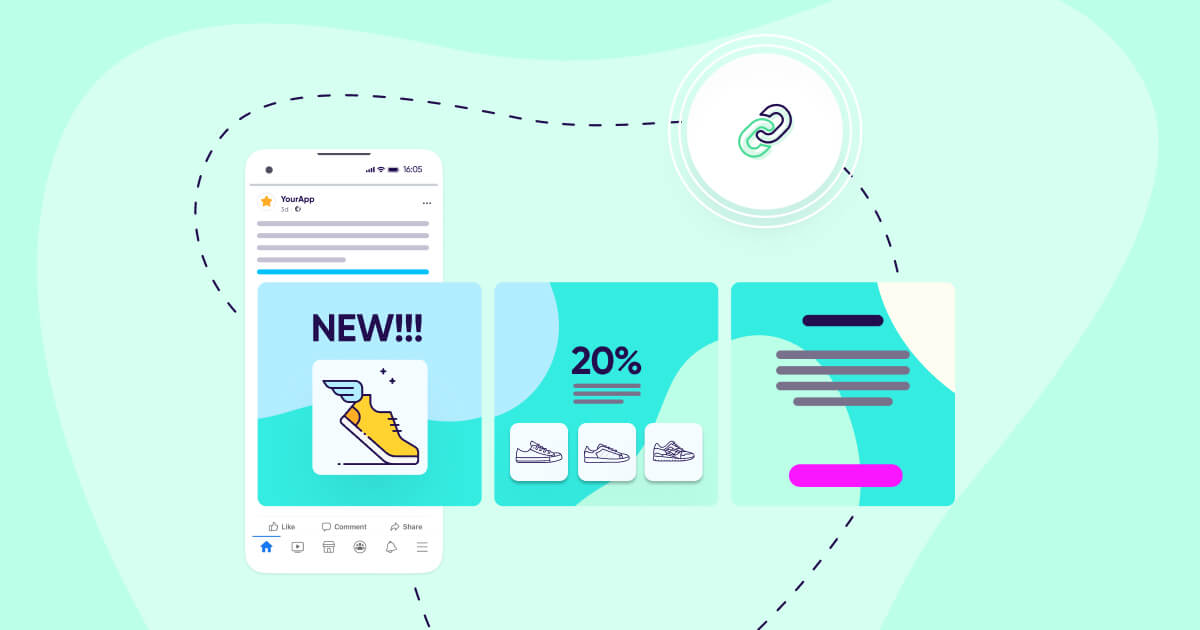
How Liftoff eliminated phantom click fraud with click signatures


The fraud economy was created by imposters.
The basic premise of a successful fraud scheme, whatever the industry may be, relies on the perpetrator successfully convincing its victims that they are capable of delivering value, when in fact this value is based on mischief.
The job of a good anti-fraud solution is to act as a detective, identify as much evidence as possible for any wrong-doings, and stop the imposter from hurting any other victims.
This highlights why protection from mobile ad fraud is not the sole responsibility of the measurement and attribution provider.
All parties must contribute to eliminating fraud: publishers, agencies, ad networks, and of course the advertisers themselves.
More often than not, a lack of attention by one of these participants is what leads to rise in fraudulent activities.
And while ad networks are often the ones receiving the blame whenever fraud appears, this does not have to be the case. There’s no reason to automatically label them as notorious fraud providers.
Many ad networks that had a history and reputation of delivering fraudulent activity took it upon themselves to actively eliminate fraud from their activity, and did so successfully.
It was simply a move that was the right thing to do for their business, having realized that their future depends on it.
Cleaning up your act
The current industry climate has fraud protection awareness at an all-time high. More companies than ever are putting anti-fraud protection at the top of their agenda because it’s in their best interest. Which makes any ad network’s best interest do the same if they wish to stay relevant and continue growing.
Whatever revenue an ad network may have been able to potentially generate through fraud is no longer considered as reliable. With a growing number of anti-fraud solutions in the market that can detect this activity and block it, this revenue may never reach their bank accounts. But above all, their business reputation will be tarnished, damaging whatever future potential they may have had.
There are many ways for an ad network to treat fraudulent activity. A fairly basic one is ensuring that traffic sent on their behalf to various parties is truly their own.
While this sounds like an odd concern, AppsFlyer’s experience from cases that occurred over the last few months indicate that this indeed calls for attention.
Clicks falsely associated with a media partner by an external entity can have serious repercussions on its reputation and business.
This could happen when competition associates massive false clicks to create a spamming misperception, or when agencies they never heard of send clicks on the network’s behalf to generate revenue from their spoofed relationship.
Addressing this relatively new fraud tactic can present ad networks with several benefits. The network can be confident that traffic associated with its name is indeed their own, and was not sent by an unknown source with questionable motives on their behalf. Moreover, it provides brand protection from whatever quality unknown sources may associate with the network’s traffic without their knowledge.
There are legit networks that provide quality traffic, and there are bad ones that don’t shy away from identity theft. There are plenty of both in our industry.
Brand safety should be as much of a concern for quality ad networks as it is for the advertisers they work with.
How Liftoff validates its traffic using AppsFlyer’s Click Signing
Liftoff, an AppsFlyer media partner, is an ad network that positions itself as a one stop shop for programmatic user acquisition and re-engagement. They operate across 93 countries with over 8 years of experience in the mobile app industry.
As a network that prides itself in its traffic quality, Liftoff recently implemented AppsFlyer’s click signature solution.
This solution applies an automatically generated temporary key that’s only visible to Liftoff and AppsFlyer for both its encryption and decryption.
Liftoff’s signed clicks allow AppsFlyer visibility into which clicks truly originate from Liftoff, eliminating the risk that another party is sending clicks on their behalf. Clicks that do not pass the signature validation test are blocked, and are not considered as Liftoff clicks.
This ensures Liftoff’s conversion rates are not affected by unwanted external interference, and improve as a result. Their Click-To-Install-Time (CTIT) distribution remains unharmed, distancing them from any click flooding discussions that may have been a result of unusual click volumes.
So far, over 200K daily clicks that were falsely delivered under Liftoff’s name were blocked and were associated with their correct sources.
Fraudsters have become more sophisticated in influencing attribution and click-based metrics, resulting in an increase in advertiser dollars diverted to fraudulent sources. By implementing click signing with trusted partners like AppsFlyer, we aim to minimize the threat to the ecosystem, and build on the safety and quality measures we’ve put in place to protect our customers.
Dennis Mink | SVP Marketing, Liftoff
Monitor, troubleshoot, validate, repeat
As part of the implementation process, AppsFlyer wanted to help Liftoff in analyzing which of their delivered clicks were in fact blocked and did not pass the signature validation process. This was key in making sure the integration was done correctly.
Liftoff were able to easily monitor the blocked clicks and have a clear understanding of why they were blocked, whether it was failed validation, encryption key expiration, or any other reason. This allowed for a smooth troubleshooting process and increased trust in the process.
Leveraging another newly released AppsFlyer capability – Data Locker for media partners – Liftoff started generating daily reports that highlighted their campaigns’ performance from the last 24 hours.
Through Data Locker, ad networks can now connect their Amazon S3 or Google Cloud buckets in order to consume aggregated campaign performance reports on a daily basis efficiently and securely. Liftoff used these Data Locker reports both for troubleshooting during the integration process, as well as for generating periodic performance data indicating how exposed their network previously was to imposter clicks.
Data Locker click signature report is just one possible data report that is available for AppsFlyer’s media partners that want to protect user privacy at all times. This partner-oriented enhancement was created to provide partners with increased visibility on their real performance, as well as provide additional unbiased transparency to the entire mobile ecosystem.
What’s next?
Fraud is no longer a concern strictly for advertisers and the measurement vendors. Ad networks who are looking to develop and maintain lasting relationships with the ecosystem are well aware that the responsibility lies on their shoulders.
The mobile advertising industry is growing and evolving. Ad networks that are looking to be catalysts of this growth, must adopt new work methods and capabilities to keep up with the ever-evolving fraud landscape.
Capabilities like click signatures and DataLocker for partners are just examples of simple, immediate steps that can be taken towards this direction, indicating that your network is indeed putting fraud protection in its priorities.






